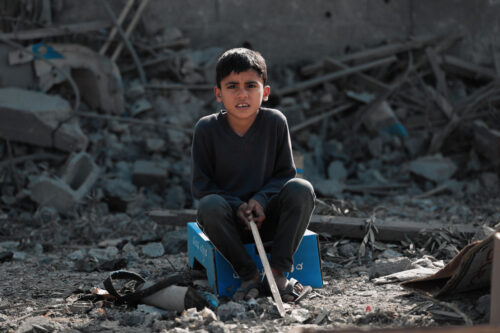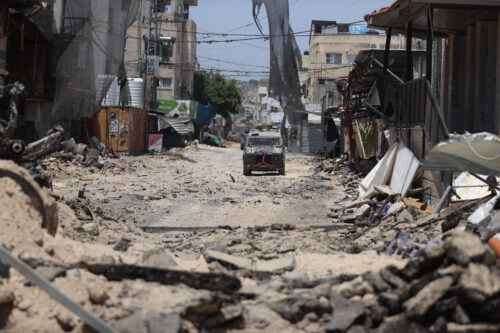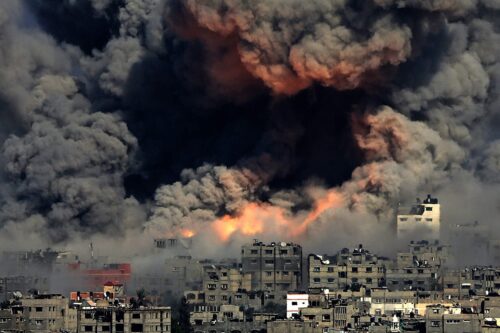Sabra and Shatila: A Painful Reminder for Palestinian Refugees
It has been 38 years since the Sabra and Shatila Massacre. The massacre was one of many horrifying events during the Lebanese Civil War and the Israeli invasion and has been described as a war crime committed by the Christian Phalangists but by the Israeli forces who were also complicit. The Israeli forces occupied Beirut and allowed the riled up Christian militia to enter and remain in the camp for four days as they killed, raped and mutilated over 3000 men, women, children and the elderly.
Shatila Camp is located in southern Beirut and is near the Sabra neighbourhood. Its population has grown in size due to the influx of Syrian refugees and an estimated 20,000 people live in the cramped and squalid urban space. The trauma and memory of the massacre as well as subsequent violence against the people in the camps remains and haunts many. There has been no justice, no accountability and no closure for victims and their families. Some still do not know what happened to their male relatives that were taken by the Phalangists.
The details of the massacre are grim and deeply shocking. The attempts to downplay the numbers of those killed or to create alternate narratives that blame Palestinians continue to this day. What happened at Sabra and Shatila is a sobering reminder of how vulnerable Palestinian refugees are and how little they have been protected or provided justice by host countries and the international community.
Shatila camp continued to suffer violence throughout the Lebanese civil war and there was very little time and space for survivors of the massacre to ever heal or have lives not tainted by fear and violence. The camp has been a site of ‘tragedy tourism’ and of journalists seeking stories from survivors without any real impact or benefit for its residents.
Very little has improved for Palestinian refugees in Lebanon in the last 38 years. The dream of returning to Palestine seems further and further out of reach whilst families are trying to survive in a environment where they lack basic political, civil, economic and social rights.
In 2020, Shatila is like many camps across Lebanon. It is facing a worsening crisis of ongoing poverty, crime and deprivation. Drugs, trafficking and sexual exploitation have entrenched themselves further into the camp as more and more additional Syrian refugees have also sought shelter there. The Covid 19 pandemic and Lebanon’s economic crisis has made life much harder for refugees who are already unable to utilise safety nets citizens may have. With a lack of access to medical care and ongoing health issues due to the living environment and years of deprivation, refugees are at great risk from Covid 19. They are unable to access work or food during lockdowns and have been struggling with food insecurity and a lack of access to clean water.
The massacre happened almost four decades ago, but the impact of the violence and loss remains. Those that were harmed or lost loved ones have had to continue on with very little support or hope of justice. They have had to live in the place they experienced death and violence and continue to bear hostility and insecurity due to sectarianism and xenophobia in Lebanon. Palestinian refugees in Lebanon are known as the ‘forgotten refugees’ as their plight is rarely mentioned or understood even by those supportive of the Palestinian cause. Their decades of struggle through violence and hardship are poorly known. The Sabra and Shatila Massacre remains a dark and heartbreaking chapter in the history of Palestine, and it is important to remember what happened and support Palestinian refugees in Lebanon as they struggle for survival and human rights.
Calculate your Zakat
Confused about how to calculate your Zakat? Try our simple-to-use calculator




